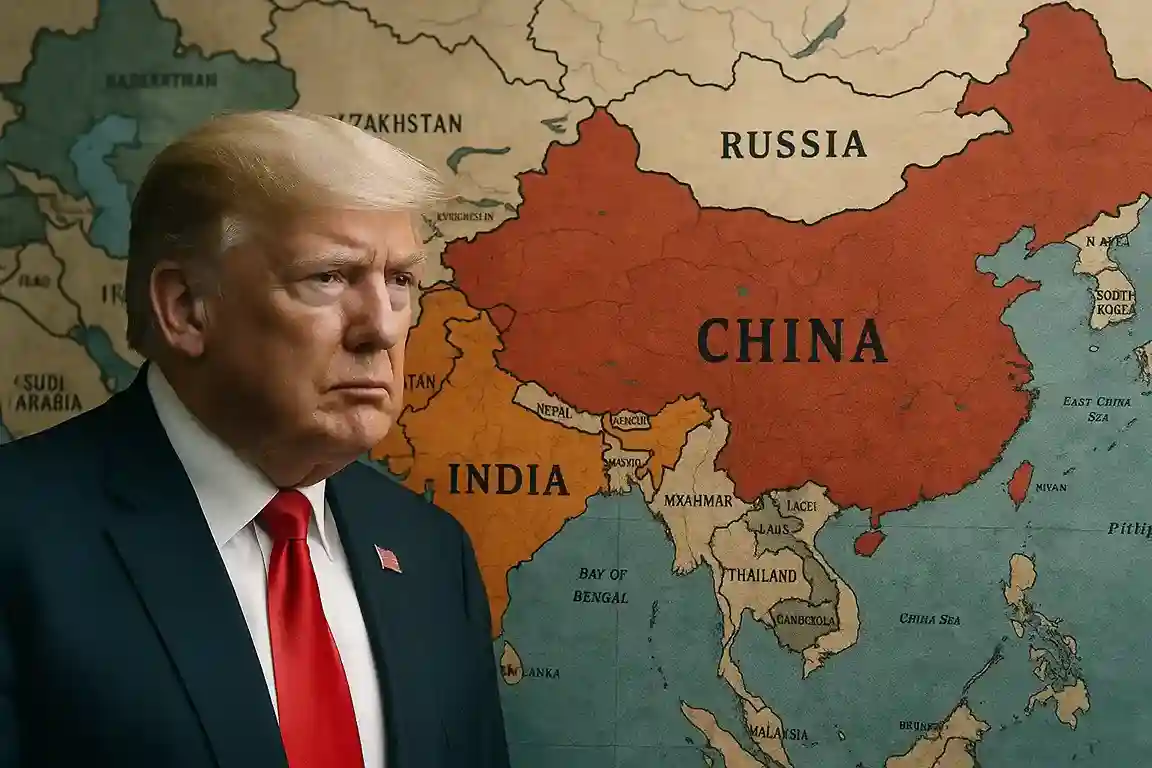A Geopolitical Gamble: Trump's Tariffs and the Redrawing of the India-China-Russia Triangle

A Geopolitical Gamble: Trump's Tariffs and the Redrawing of the India-China-Russia Triangle
NEW DELHI, India – In an increasingly multipolar world, India is strategically navigating its relationships with major global powers. While trade tensions with the United States persist due to tariffs imposed on Indian goods, this friction is occurring within a broader context of India's long-standing ties with Russia and its complex, yet significant, engagement with China.
The United States, under recent administrations, has implemented tariffs aimed at addressing trade imbalances, impacting various sectors of the Indian economy. These measures have led to diplomatic discussions and, at times, retaliatory tariffs from India, highlighting the economic complexities between the two nations. However, the US remains a crucial trading partner and a key ally for India in various strategic domains.
Deepening Ties with Traditional Partner: Russia
India's relationship with Russia is deeply rooted in history, particularly in defense cooperation. Despite geopolitical shifts and international pressure, this partnership has endured and even expanded into areas like energy. India continues to procure Russian military hardware and has increased its imports of Russian oil, driven by economic considerations and its commitment to an independent foreign policy. This engagement with Russia is a cornerstone of India's strategic autonomy and its ability to diversify its partnerships.
Pragmatic Engagement with a Competitor: China
The relationship between India and China is multifaceted. While marked by border disputes and strategic competition in the Indo-Pacific region, the two Asian giants also maintain substantial economic ties. Bilateral trade remains significant, and both countries share a common vision for a more multipolar global order, often finding common ground on platforms like BRICS. India's engagement with China is driven by a pragmatic approach that seeks to manage tensions while pursuing economic benefits and multilateral cooperation on shared global interests.
Strategic Autonomy at the Core
India's foreign policy is fundamentally guided by the principle of strategic autonomy. This means that while navigating trade challenges with the US and maintaining strong ties with Russia and engaging with China, India ultimately prioritizes its own national interests and avoids becoming solely reliant on any single power bloc. The tariffs imposed by the US, while creating trade friction, are just one factor in this intricate balancing act. India's relationships with Russia and China are driven by a complex interplay of historical ties, economic benefits, and a shared vision for a multipolar world, rather than solely as a response to US trade policies.
India's approach reflects a deliberate strategy to leverage its relationships with all major powers to advance its own economic and security interests in a rapidly evolving global landscape.


